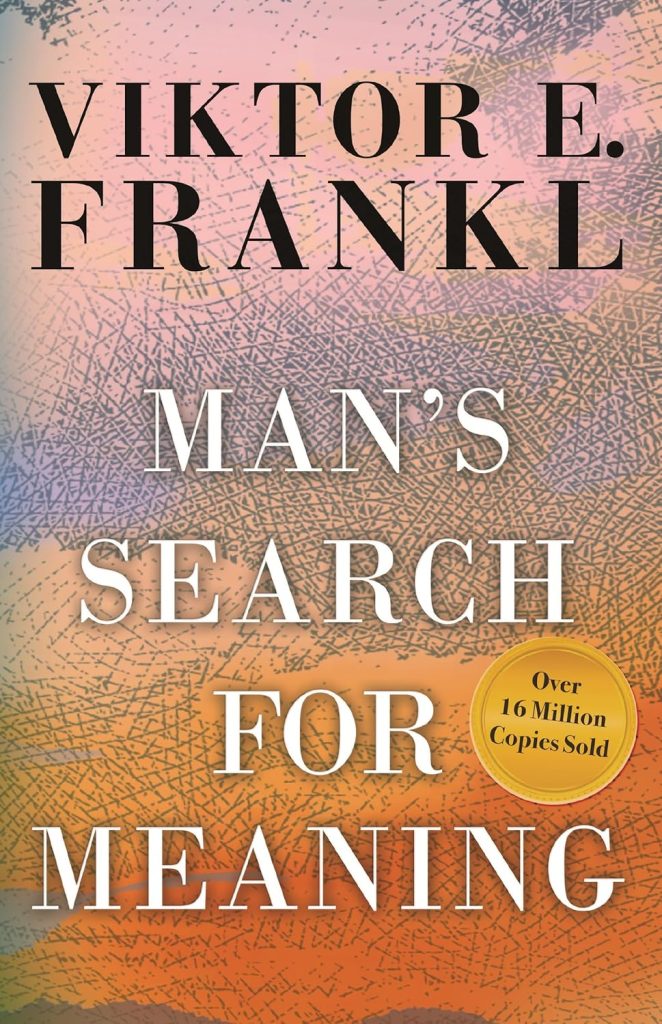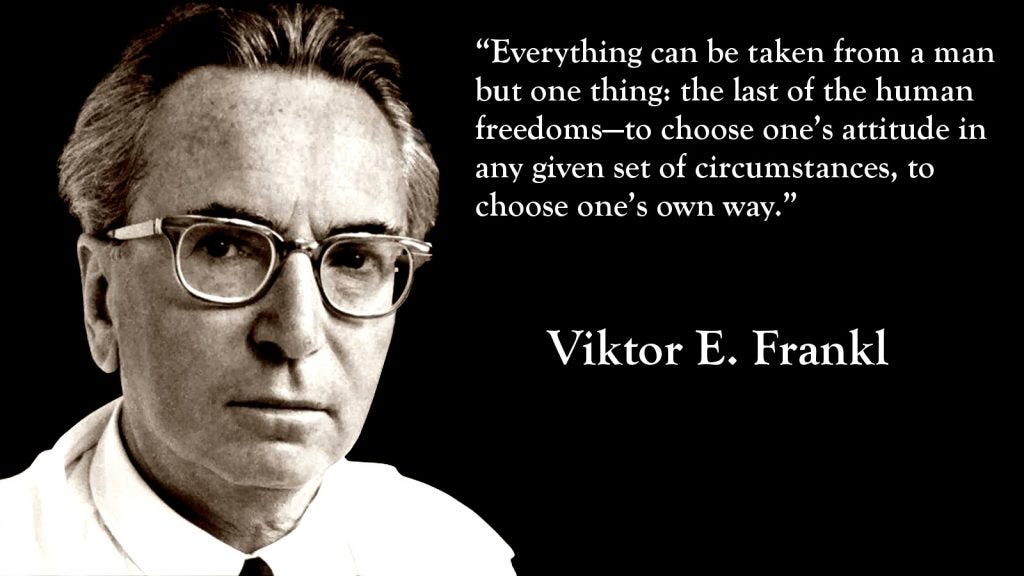The First Time I Picked Up Frankl’s Book
I still remember the moment I first opened Viktor Frankl’s Man’s Search for Meaning. I was curled up in the corner of a library, one of those quiet afternoons when you’re just looking for something to inspire you. Honestly, I thought it was going to be just another “philosophy book” that I might skim through and forget about. But a few pages in, I felt something shift.
His words were alive. They spoke about suffering, purpose, and resilience in a way that didn’t feel theoretical. It felt like Frankl was whispering directly to me, like he knew the exact weight I carried in my own life. Stress from studying abroad at 17, the loneliness of being far away from family, and the exhaustion of pushing my body through triathlon training.
That book didn’t just inspire me. It redefined how I understand resilience.

Resilience Isn’t Perfection, It’s Survival with Meaning
Frankl was a Holocaust survivor. He lived through unspeakable suffering, losing his family, his home, and his career. Yet in the darkest possible place, he discovered something extraordinary: that humans can survive nearly anything if they have a reason, a “why.”
In his own words,
Those who have a ‘why’ to live, can bear with almost any ‘how.’
When I read that, my mind immediately traveled back to a rainy morning during my training for a half Ironman. My lungs were burning, my legs felt like lead, and my heart whispered, “Why are you doing this to yourself?” In that moment, I thought of Frankl. If he could find a reason to keep living in a concentration camp, I could find a reason to finish my run.
That’s what resilience really is. Not smiling through everything. Not pretending to be okay. It’s finding meaning in the middle of pain.
Lesson 1: Pain Is Inevitable, But It Can Be Transformed
One of Frankl’s most powerful insights is that suffering is part of life. You can’t run away from it. But you can transform it when you connect it to a greater purpose.
He wrote,
In some ways suffering ceases to be suffering at the moment it finds a meaning.
For me, this lesson hit hardest during my first year abroad. At 17, studying in Canada, I felt lonely in ways I couldn’t explain. I missed my mom’s cooking, the smell of my hometown streets, even the noise of my family’s voices in the background. Some nights, I cried quietly into my pillow, wondering if I had made the wrong choice leaving home so early.
But then I’d remind myself of the bigger picture. I wasn’t there just for a degree. I was building a future for myself, carrying the dreams of my family, and paving the way for younger students who’d come after me. That meaning didn’t erase the pain, but it gave me the strength to live through it.
Resilience, I realized, isn’t about avoiding pain. It’s about giving pain a direction.
Lesson 2: We Don’t Control Circumstances, But We Do Control Choices
Frankl wrote that the last of human freedoms is the ability to choose one’s attitude in any given situation. His exact words were,
Everything can be taken from a man but one thing: the last of the human freedoms – to choose one’s attitude in any given set of circumstances, to choose one’s own way.
That idea shook me.
Because I’m the type who loves to control everything, my schedule, my training plan, my study notes. When things fall apart, I panic. But Frankl’s words reminded me that resilience isn’t about controlling life. It’s about controlling how I respond to life.
When my triathlon coach once told me to rest for two full weeks because of an injury, I was furious. I felt like I was falling behind while everyone else was getting stronger. But I had a choice. I could sink into frustration, or I could use the time to strengthen other areas, stretching, mental preparation, and even journaling to stay grounded.
Choosing the latter didn’t magically heal me, but it made me stronger in ways I didn’t expect.

Lesson 3: We Grow Stronger When We Serve Others
One of the most beautiful parts of Man’s Search for Meaning is when Frankl describes how those who focused on helping others – sharing food, offering encouragement, simply listening—were more likely to emotionally survive the camps.
He noticed,
The more one forgets himself – by giving himself to a cause to serve or another person to love—the more human he is and the more he actualizes himself.
It reminded me of volunteering with students in Vietnam. I’d walk into workshops tired, drained from my own projects, but the moment I saw their eager faces, my energy came back. By giving them my time and advice, I wasn’t just helping them. I was helping myself.
Resilience is not a solo project. It is built in connection.
Lesson 4: Beauty Is a Lifeline in Darkness
Frankl described watching a sunset through barbed wire and feeling peace for a fleeting moment. Even in a place built on despair, beauty could still touch his soul.
He later wrote,
If there is meaning in life at all, then there must be meaning in suffering. Suffering is an ineradicable part of life, even as fate and death.
And even in that suffering, there are glimpses of beauty that remind us we are still alive.
I’ve had smaller, gentler versions of that moment. During a long training ride across Can Gio, with sweat dripping down my back and my legs aching, I looked up and saw the sun melting into the horizon. For a second, I forgot about the pain. I felt alive, reminded that life still offers beauty even when we’re struggling.
That’s resilience too, choosing to notice beauty, even when the world feels heavy.
Lesson 5: Resilience Is a Daily Practice, Not a One-Time Achievement
The biggest lesson I’ve carried with me is this: resilience isn’t a medal you win once and keep forever. It’s a practice. A decision you make every single day.
Every time I wake up early for a run instead of hitting snooze. Every time I sit down with a student who’s struggling instead of walking past. Every time I choose hope instead of despair.
Frankl put it simply,
When we are no longer able to change a situation, we are challenged to change ourselves.
That is the essence of resilience.
Bringing It Back to You
So what does this mean for you, sitting on your bed scrolling on your phone, maybe tired from classes, or maybe overwhelmed by work?
It means you don’t have to have everything together. You don’t have to be perfectly strong. You just need a reason, however small, to keep going. Maybe it’s finishing your semester. Maybe it’s showing up for a friend. Maybe it’s simply making it to tomorrow.
Resilience is not about never falling. It’s about always finding a reason to stand up again.
My Final Reflection
When I look back at my journey, studying abroad as a teenager, building projects from scratch, training for Ironman races, I see moments where I thought I couldn’t keep going. But I did. Not because I was superhuman, but because I remembered what Frankl taught me.
We can’t always choose our circumstances. But we can always choose our “why.”
And that, right there, is the heart of resilience.

